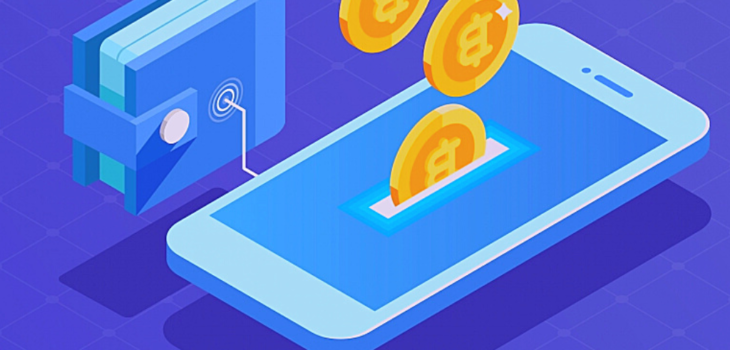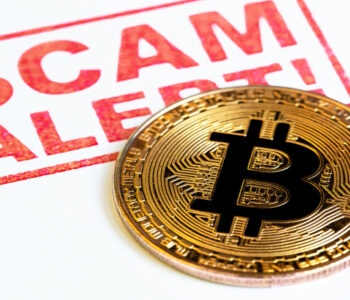 Crypto Guides
Crypto Guides
How to recover stolen cryptocurrency: Crypto Tips
Even casual bitcoin observers have heard at least one terrifying tale of an early adopter discarding a hard disk with a great deal of cryptocurrency. And almost all bitcoin enthusiasts are aware of the following statistic: the Wall Street Journal estimates that approximately 20% of all bitcoin, or around $20 billion, gets lost, most of it permanently.
Be Extra Careful With Your Crypto
The first, and most important, step in safeguarding your cryptocurrency is to never store it on an exchange. Exchanges are hot targets for hackers because they offer a single point of entry into the digital wallets of many different users. If an exchange gets hacked, there’s a good chance that your currency will be stolen as well.
Instead, it would be best if you store your cryptocurrency in a digital wallet that is stored on a secure, offline device. This could be a dedicated hardware wallet, such as the Ledger Nano S, or a paper wallet that you generate yourself. Hardware wallets are the most secure option, but they can be expensive and require some technical know-how to set up. Paper wallets are much simpler to use, but they’re also less secure because they’re vulnerable to physical theft and destruction.
If you do choose to store your cryptocurrency on an exchange, make sure that it’s a reputable one with a good security track record. Coinbase, for example, is a widely-used and well-respected exchange that has implemented a number of security features to protect user funds.
Ways Your Crypto Assets Can Be Stolen
There are a few different ways that your cryptocurrency can be stolen. Due to theft and fraud, investors have lost $12 billion over the previous two years via Decentralized Finance (DeFi) systems. These losses have escalated from around $1.5 billion in 2020 to $10.5 billion in 2021, and they are also accelerating.
Although DeFi’s lack of regulation is what makes it so creative, it also makes it extremely difficult to have your losses reimbursed. Even if your cryptocurrency is stored in a hot wallet or on an exchange, there is no bank or government to step in when things go wrong. This makes knowing the hazards that are out there and how to defend oneself much more crucial.
Phishing Attacks
One of the most common ways that cryptocurrency is stolen is through phishing attacks. In a phishing attack, a hacker will pose as a trusted entity in order to trick you into giving them access to your digital wallet or account information. This can be done in a number of ways. The hacker might send you an email that looks like it’s from your exchange or wallet provider, or they might create a fake website that looks identical to the real thing.
If you’re not careful, it’s easy to fall for a phishing attack. That’s why it’s important to only click on links that you trust, and to double-check the URL of any website before you enter your login information. If you’re ever unsure about whether a website or email is legitimate, you can contact the customer support team of your exchange or wallet provider to confirm.
Exit Scams
An exit scam occurs when a fraudulent project or investment scheme collapses, and the people behind it disappear with all of the money that has been invested. This is a particular risk in the cryptocurrency space because many projects are still in their infancy and have yet to be regulated.
If you’re thinking about investing in a cryptocurrency project, do your research to make sure that it’s legitimate. Check to see if the team is transparent about their identities and track record, and read reviews from other investors to get a sense of whether or not the project is reputable.
Device Hacks
Your cryptocurrency can also be stolen if your device is hacked. This is more likely to happen if you’re storing your currency in a hot wallet, but it’s still possible even if you’re using a hardware wallet. If your device is hacked, the hacker will gain access to your digital wallet and will be able to send your currency to your own wallet.
To protect yourself from device hacks, it’s important to use a strong and unique password for your cryptocurrency accounts and to enable two-factor authentication whenever possible. You should also avoid downloading any suspicious applications or clicking on any links that could lead to malware.
Secret Keys Stealing
One of the most important things to know about cryptocurrency is that it’s not possible to reverse a transaction once it has been made. This means that if you accidentally send your currency to the wrong address, you won’t be able to get it back. To avoid this, always double-check the recipient’s address before you hit send.
Another way to lose your currency is if your secret keys are stolen. Your secret keys are what allow you to access and spend your cryptocurrency, so if they fall into the wrong hands, your currency will be gone for good. That’s why it’s important to keep them safe and secure and to never share them with anyone.
First Steps To Recover Your Stolen Crypto
Although cryptocurrency is typically thought to be quite secure, things do occasionally happen. Even professional traders have experienced the loss or theft of crypto assets, and until recently, it looked like there was nothing that could be done about it. Luckily, there are ways that you can recover your bitcoin.
Notify The Crypto Exchange
The first thing you need to do if you think your cryptocurrency has been stolen is to contact the customer support team of your exchange or wallet provider. They may be able to help you recover your currency or at least give you some advice on what to do next. If you’re not sure whether or not your currency has been stolen, you can check the blockchain to see if there have been any recent suspicious transactions.
Contact the police
You should also report the theft to the police and file a report. This will help to create a paper trail that can be used if you need to take legal action to recover your currency.
Follow your crypto money
Once you have reported the theft to the authorities and your exchange or wallet provider, it’s important to keep an eye on your currency. If you see any suspicious activity, make sure to report it right away.
Tips To Help Prevent Future Theft
The bitcoin sector barely became widely accepted during the past ten years, yet it has already generated a narrative that is so well-known that it is almost cliche. An individual is the target of a hostile attack, or possibly even a digital money exchange.
A significant amount of digital money is lost as a result. With their stolen digital assets, the hackers appear to disappear into the emptiness of online anonymity, making it hard to find or retrieve them. There are a few things you can do to help prevent your cryptocurrency from being stolen in the future.
Use 2FA Authentication
One of the most important things you can do to protect your cryptocurrency is to enable two-factor authentication (2FA) on your accounts. 2FA adds an extra layer of security by requiring you to enter a code from your phone or another device in addition to your password when you log in. This makes it much harder for hackers to gain access to your account.
If you’re not already using 2FA, now is the time to start. You can enable it on your exchange or wallet account by going to the security settings and following the instructions.
Use A Hard or “Cold” Wallets
Another way to protect your cryptocurrency is to store it in a hardware wallet. Hardware wallets are physical devices that allow you to store your cryptocurrency offline. This means that even if your computer is hacked, your currency will be safe.
Hardware wallets are the most secure way to store your cryptocurrency, but they can be a bit expensive. If you can’t afford a hardware wallet, you can also use a paper wallet. Paper wallets are simply pieces of paper with your public and private keys printed on them. You can generate a paper wallet for free using this website.
Do not talk publicly about owning cryptocurrency
You should also be careful about talking publicly about owning cryptocurrency. If you do, you may become a target for thieves. Hackers have been known to search social media for people talking about their digital assets and then target them with phishing attacks or other scams. If you must talk about your cryptocurrency online, make sure to use only secure and private channels.
Spread your investment across exchanges
Investing all of your cryptocurrency in one exchange is a bad idea. If that exchange is hacked or goes out of business, you could lose everything. Instead, you should spread your investment across multiple exchanges. This way, if one exchange is hacked, you will still have cryptocurrency in other exchanges.
Investing in multiple exchanges also allows you to take advantage of different features and benefits. For example, one exchange may have lower trading fees than another.
Set up an account with a new email and password
When setting up a new account with an exchange or wallet provider, make sure to use a new email address and password. This will help to protect your account from being hacked.
You should also be sure to use a strong password that is difficult for hackers to guess. A good password should be at least eight characters long and include a mix of uppercase and lowercase letters, numbers, and symbols.

